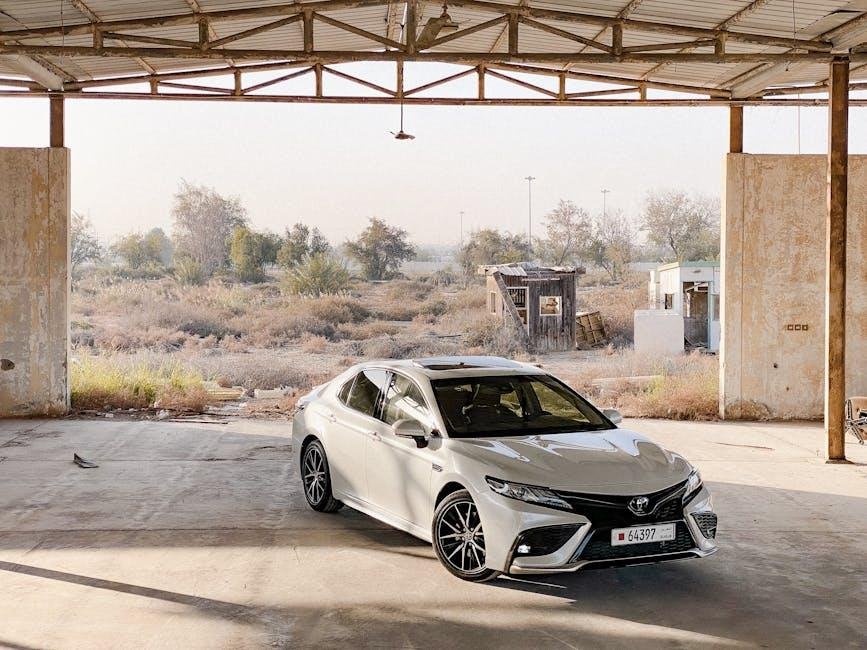In an era where sustainability meets innovation, the automotive landscape is evolving at a breathtaking pace. With rising concerns over climate change and fuel consumption, drivers are confronted with a pivotal question: Should you choose a hybrid or an electric vehicle? Both options promise reduced emissions and fuel efficiency, but they cater to different lifestyles and preferences. In this article, we will traverse the winding roads of technology, ecology, and practicality to illuminate the essential differences and unique benefits of hybrids and electric vehicles.whether you’re a longtime eco-enthusiast or a curious newcomer, preparing to green your drive, join us as we navigate the intricate terrain of automotive choices, helping you find the perfect match for your journey ahead.
Understanding the Fundamental Differences Between Hybrid and Electric Vehicles
The debate between hybrid and electric vehicles often centers around their core mechanics, which significantly influence performance and driving experience. Hybrid vehicles combine an internal combustion engine with an electric motor, utilizing both power sources to optimize fuel efficiency, especially during short trips or stop-and-go traffic. Conversely, electric vehicles (EVs) operate solely on electricity stored in batteries, providing a more silent ride and lower operational costs, all while contributing to reducing greenhouse gas emissions. Here’s a concise look at their characteristics:
- Hybrid Vehicles:
- Use both gasoline and electric power.
- Generally have a longer range due to the gasoline engine.
- Regenerative braking recharges the battery while driving.
- Electric Vehicles:
- rely entirely on electric power.
- Usually require less maintenance due to fewer moving parts.
- Incentives and rebates are often available for buyers.
When it comes to charging infrastructure, the two types of vehicles further diverge. Hybrids can rely on conventional fuel stations, making them convenient for long trips without the need for charging stops. In contrast, electric vehicles demand access to charging stations, with options ranging from home charging solutions to growing networks of public charging points. Below is a brief comparison:
| Aspect | Hybrid Vehicles | Electric Vehicles |
|---|---|---|
| Fuel Source | Gasoline + Battery | Electricity only |
| Charging | no charging needed | Requires charging stations |
| Environmental Impact | Lower than conventional vehicles | Minimal emissions |

Evaluating Environmental Impact: Which Option is Greener?
When it comes to assessing the environmental impact of vehicles, both hybrid and electric options present unique advantages and challenges. Hybrids utilize a combination of gasoline engines and electric motors, typically resulting in lower fuel consumption and CO2 emissions compared to traditional vehicles. They often afford greater flexibility for longer trips, as they are not solely reliant on charging stations.Though, the environmental footprint can be influenced by the efficiency of the gasoline engine and the total lifecycle emissions associated with their production and disposal. Common concerns include:
- Battery Manufacturing: The production of hybrid batteries often involves mining materials,which can lead to habitat destruction and pollution.
- Fuel Dependency: While hybrids reduce gas consumption, they still require fossil fuels, contributing to ongoing greenhouse gas emissions.
Electric vehicles (EVs), on the other hand, promise a more sustainable future if powered by renewable energy sources. The absence of tailpipe emissions significantly cuts down urban air pollution, and advancements in battery technology continue to enhance their efficiency. However, the environmental impact of EVs largely depends on the source of the electricity used for charging. A table comparing the key aspects of both options can highlight these points:
| Criteria | Hybrids | Electrics |
|---|---|---|
| Emissions | Lower than traditional cars | Zero tailpipe emissions |
| Fuel Source | Gasoline & Electric | electricity (from various sources) |
| Charging Infrastructure | Less reliance on charging stations | Dependent on charging availability |
| Battery Impact | Environmental cost of hybrid batteries | High demand for battery materials |
Ultimately, the choice between hybrids and electrics depends on lifestyle, daily mileage, and access to charging stations. As technology progresses, the lines between these options may blur, making it increasingly notable to consider not just the vehicles themselves, but also the infrastructural and resource-related implications of each choice. Adopting electric vehicles coupled with clean energy sources appears to be a crucial step towards greener transportation alternatives.

Cost Considerations: Long-Term Savings vs. upfront Investment
When choosing between a hybrid and an electric vehicle, one of the primary factors frequently enough considered is the financial aspect. Upfront investments in electric vehicles (EVs) can be significantly higher than those for hybrids, primarily due to the cost of batteries and advanced technology. Though, the initial expenditure doesn’t tell the whole story. Over time, electric vehicles generally offer advantages such as reduced fueling costs, fewer moving parts that require maintenance, and sometimes even tax incentives. Many states provide incentives that can lower the total price,effectively decreasing the upfront burden.
It’s crucial to look at the long-term savings associated with both vehicle types. Consider potential savings in the following areas:
- Fuel Costs: evs typically cost less to “fuel” compared to gasoline prices, especially when charging at home.
- Maintenance: Electric motors have fewer components than traditional drivetrains, which usually results in lower maintenance costs over the lifespan of the vehicle.
- Resale Value: As EV technology advances, the depreciation rates for hybrids and electric cars can differ significantly, often favoring the latter.
below is a comparative table that highlights typical cost estimates for both vehicle types:
| Cost Factor | Hybrid Vehicle | Electric Vehicle |
|---|---|---|
| Upfront Cost | $25,000 - $35,000 | $30,000 - $50,000 |
| Fuel Cost/Year | $1,500 | $500 |
| Maintenance Cost/Year | $700 | $300 |
| Potential Tax Credits | None | Up to $7,500 |

Determining Your driving Habits: Finding the Best Fit for Your Lifestyle
Understanding your driving habits is essential when choosing between a hybrid or electric vehicle. If you often take short trips around town or have the flexibility to charge at home, an electric car could be the perfect fit for you. These vehicles not only offer zero tailpipe emissions but also provide significant savings on fuel costs over time. However,if your daily routine involves longer commutes or occasional road trips,a hybrid might suit you better due to its dual power source,allowing you to switch between gasoline and electric according to your needs.
Consider the following points when evaluating your lifestyle and preferences:
- Daily Commute: How far do you typically drive each day?
- Charging Availability: Do you have access to charging stations at home or work?
- Driving Frequency: How often do you take long trips or drive significant distances?
- Environmental Impact: How important is reducing your carbon footprint to you?
| Feature | Hybrid | Electric |
|---|---|---|
| Fuel Efficiency | Up to 50 MPG | Zero gas usage |
| Range | 400+ miles | 150-370 miles |
| Charging Time | Not required | Up to 12 hours (standard) |
| Emissions | Lower than gasoline | Zero tailpipe emissions |
The Conclusion
As we draw the curtain on our exploration of hybrids and electrics, it’s clear that the choice between the two isn’t as straightforward as it might seem. Each vehicle type comes with its own set of advantages and challenges, shaped by your lifestyle, driving habits, and personal values. Whether you lean towards the versatility of hybrids or the innovation of electric vehicles, the decision ultimately rests in your hands.
Consider your daily routines, the range of your journeys, and your environmental aspirations. Perhaps you’re drawn to the legacy of hybrid technology, a bridge to a more sustainable future, or maybe the allure of electric vehicles is strongest, representing a bold leap into the realm of zero emissions.
In a world where transportation is in flux, your choice matters—not just to you, but to the planet as well. Take the time to weigh your options, envision your perfect ride, and embrace the evolution of driving. Whichever path you choose, one thing is certain: the road ahead is paved with possibilities, each offering a unique journey toward a smarter, greener tomorrow. Happy driving!


